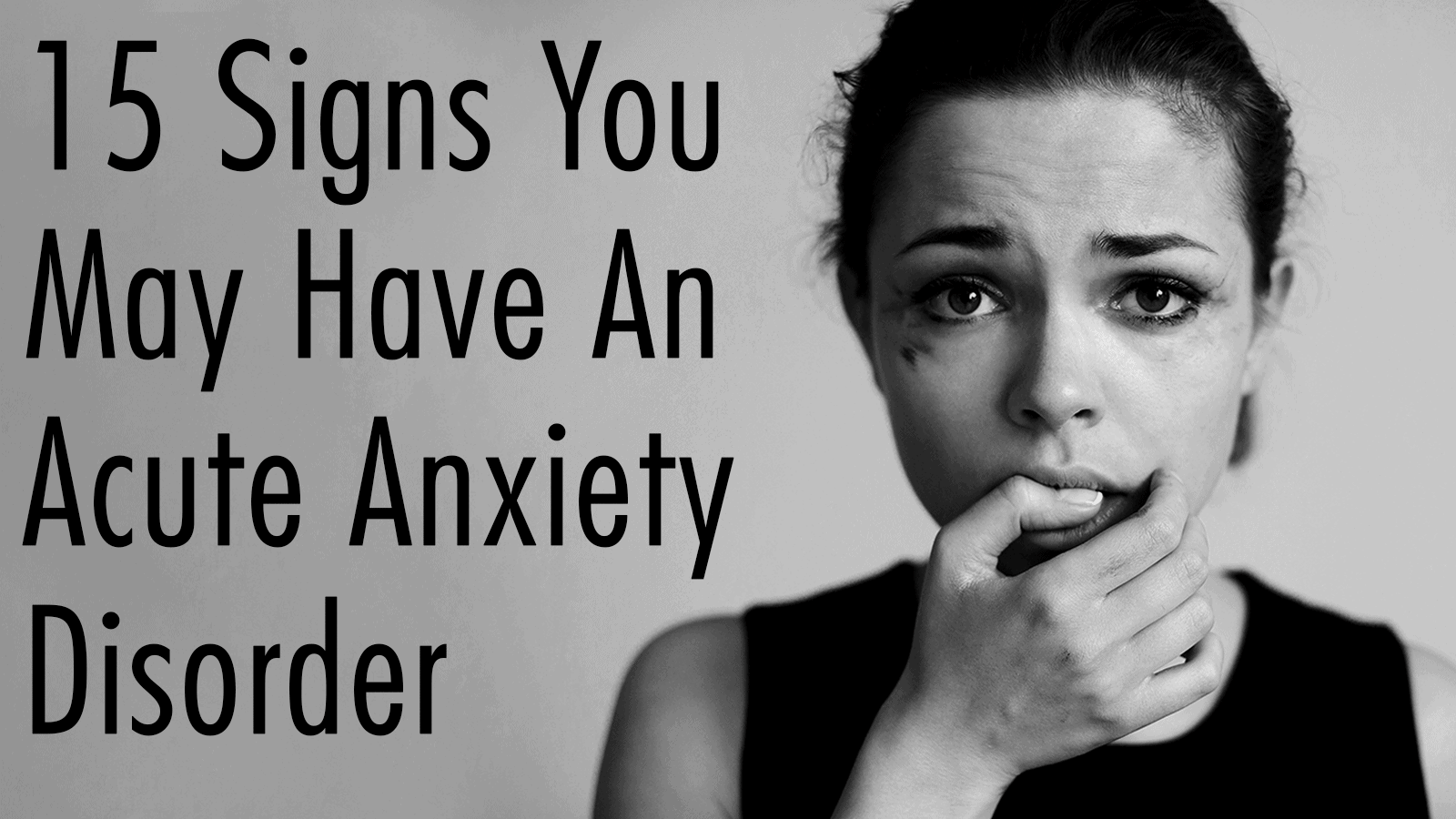Practically everyone at some point in their life feels a sense of anxiety. Anxiety is defined as the anticipation of a negative outcome. Furthermore, it is often associated with avoidance behavior and muscle tension. It’s a normal reaction when facing stressful situations such as a final exam, phobias, or even a business presentation. Acute anxiety can also be beneficial in times of need. Likewise, it alerts us and helps us prepare in dangerous situations.
At the same time, anxiety disorders affect over 30% of Americans. Acute anxiety disorder is a feeling of fear, apprehension, nervousness, or worry. It can be a debilitating disorder that causes people to avoid situations that may trigger their symptoms. It can affect their school work, personal life, and job performance. Anxiety likewise becomes a problem when the sufferer can’t sleep or function. Women and teenagers are the most susceptible to acute anxiety disorders.
Medical researchers are unsure about how anxiety disorders begin. They stem from a combination of things such as genetics, environmental stressors, and changes in the brain.
Common Types Of Anxiety Disorders
Anxiety disorders can certainly impact a person’s daily life. It is an umbrella term that includes several conditions, including those that may require treatment:
• Panic Disorder
This occurs when you feel a panic attack or a feeling of terror striking at random. It may cause you to experience heart palpitations, chest pain, the sensation of choking, or feeling like you are having a heart attack.
• Social Anxiety Disorder
Also known as social phobia, social anxiety makes you feel overwhelmed in normal social situations. You may obsess about the potential for others to judge or embarrass you.
• Specific Phobias
A specific phobia is an intense fear of a specific situation such as flying or a fear of heights. Because the phobia can be so extreme, you may avoid ordinary activities.
• Generalized Anxiety Disorder
Also known as GAD, generalized anxiety disorder is tension or worry for no apparent reason. It can come on unprovoked and cause restlessness, trouble with focusing, and constant worrying.
• Obsessive-Compulsive Disorder (OCD)
OCD is characterized by unwanted recurring thoughts (obsessions), and repetitive behaviors (compulsions). Repetitive behaviors include excessive counting, checking, and hand washing. Another common symptom is obsessive cleaning. These compulsions may be out of hope that they will make the obsessive thoughts go away.
•Post-Traumatic Stress Disorder (PTSD)
Finally, PTSD commonly develops after one is exposed to a horrific ordeal or event. Examples of these traumas include accidents, natural disasters, violent assaults, or military combat.
Symptoms Of Anxiety
All anxiety disorders share some general symptoms:
- Fear, uneasiness, panic
- Restlessness or insomnia
- Tingling of hands or feet
- Agitation
- Heart palpitations
- Dry mouth
- Shortness of breath
- Nausea
- Tense muscles
- Dizziness
Diagnosis
If you believe you are experiencing panic attacks or anxiety you should contact your doctor immediately for acute anxiety treatment. They will examine you and your medical history as well as run tests to rule out underlying illnesses. A psychiatrist or psychologist can also speak with you in-depth and use specific testing to determine if you have an acute anxiety disorder. Finally, inform your physician of any herbal or over-the-counter medications you take, as they can interfere with anti-anxiety medications.
Acute Anxiety Treatment
There are acute anxiety treatment options for anxiety disorders. The treatments and therapies can help people live life to their fullest. Many antidepressants and low-dose antipsychotic drugs can help lower anxiety. Additionally, counseling will likely address the emotional response to mental illness. Cognitive behavioral therapy will teach you to recognize your triggers and thought patterns and learn how to change them. A psychotherapist can probably help determine which acute anxiety treatment is best for you.
Suffering from anxiety can be completely overwhelming and disabling. However, the proper psychological and acute anxiety treatment can help you manage your symptoms. You can prevent the onset of an anxiety attack by limiting foods and drinks that contain caffeine including tea, coffee, soda, chocolate, and energy drinks. Caffeine is known to alter one’s mood and can heighten symptoms of anxiety disorders, making them worse. Eating right and exercising regularly will not only help you sleep better, but it will also release serotonin in the brain to improve your mood. Additionally, making a good night’s sleep a priority will minimize your chances of having anxiety.
https://www.youtube.com/watch?v=lFdcCXmGpy4














 Community
Community

